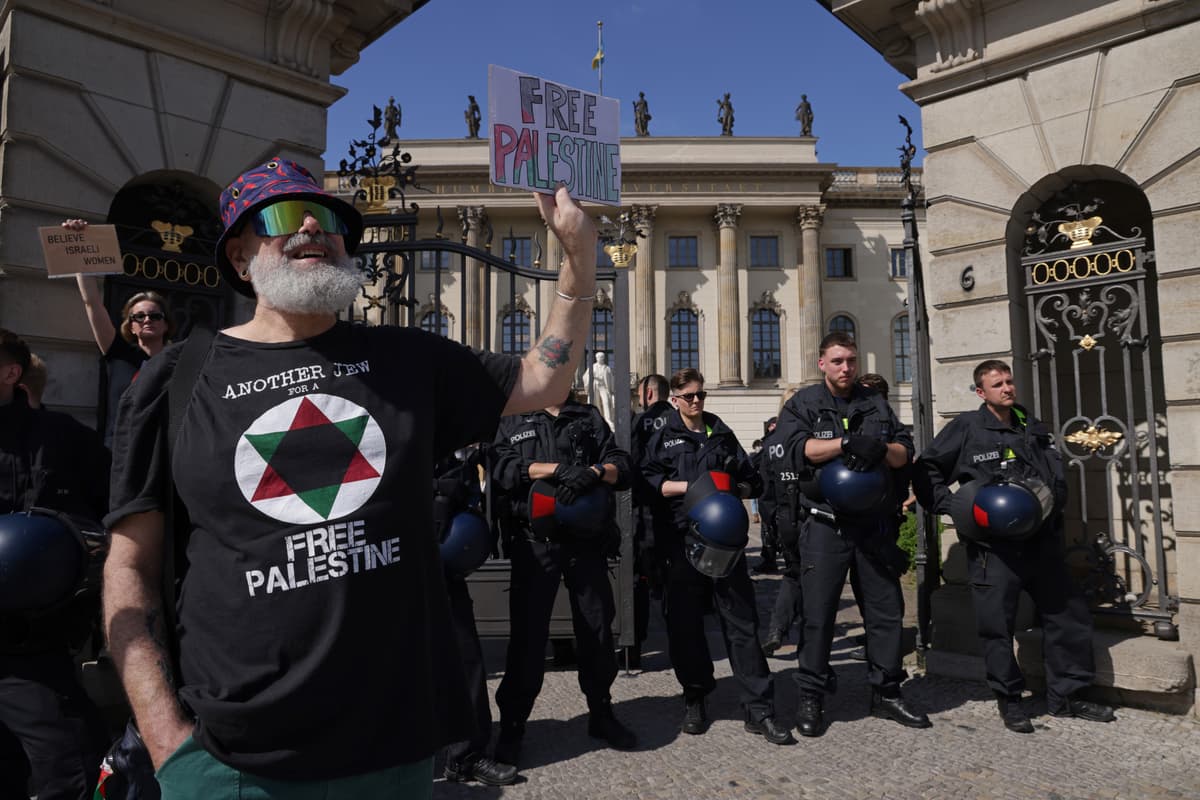Jewish? Gay? Berlin’s Police Chief Warns Against Visiting Neighborhoods Where Arabs Live
Germany’s supposedly vibrant and exciting capital is the latest major European city to fall prey to intolerance.

Achtung, traveler. Berlin, history’s prizewinner for Europe’s cruelest capital, can once again no longer be considered safe for residents or visitors who are visibly either Jewish or gay — and that is according to the city’s chief of police, Barbara Slowik.
In an interview with the Berliner Zeitung, Chief Slowik said that Jews and homosexuals should avoid places in Berlin where “people of Arab descent” who have “sympathies for terrorist groups” live.
Although it could be considered useful for some at this point, she did not offer a map of those areas. However, the advisory was unambiguous.
“There are areas — and we have to be honest about this — where I would advise people who wear a kippah or are openly gay or lesbian to be more careful,” the police chief said, adding that it was not her intention to “defame” any particular group of people or brand them as violent offenders.
She stopped short of saying that the city has “no-go zones,” but implicitly, she did suggest that. “There are, unfortunately, neighborhoods in Berlin with a majority of residents from Arab backgrounds where there is open sympathy for terrorist organizations and very blatant antisemitism.”
According to the police chief, violent crimes against Jews in Berlin are low, “although without question every crime is one too many.” However, the numbers tell a different story. Since October 7, 2023, the newspaper reported, police have initiated over 6,200 investigations into antisemitism and incitement — and that is just in the vibrant city of Berlin. The number of antisemitic incidents doubled last year compared to 2022.
Many of those investigations stem from online hate speech, but not only — there has also been, since Hamas terrorists launched their murderous attacks against Israel more than a year ago, a spike in property damage and what are listed as “propaganda crimes.”
There have been 1,300 investigations into violent crimes related to attacks on or resistance to police officers during anti-Israel demonstrations in Berlin. It is the overall number of investigations, though, that has contributed to a climate of fear within the city’s Jewish community.
In areas of the sprawling capital with large Arab populations, gay or LGBTQ individuals have in recent months also been reporting more acts of violence directed against them. Chief Slowik called on people to be vigilant and to report suspicious activities. She assured that the police would do everything in their power to ensure the safety of citizens.
“We must work together against all forms of hatred and violence,” she said, but added that “our resources are being tested to their limits.”
The police chief’s remarks come at a time when Germany as a whole is grappling with a refugee crisis stemming from the more than a million Syrians who started coming to the country in 2015. Many of these Muslim migrants are thought to be radicalized and are frequently linked to violent crimes — not just in Berlin. The failure of many refugees to integrate has fueled the rise of far right political parties and put pressure on the mainstream ones to come up with solutions, which have generally been lacking.
What is happening in Berlin is not happening in isolation. Next door to Germany, the Netherlands is still reeling from several days of antisemitic violence that saw packs of Arabic-speaking hooligans hunt down Jews in the streets. The situation was aggravated by an underwhelming police response. The violence sent shock waves across Europe. It also nearly led to a collapse of the Dutch government.
In Germany, national politics is already in a state of paralysis ahead of the election in February. That means anything like an effective national plan to make German cities safer in the near term is chimerical. Travelers heading this holiday season to European cities like Berlin — which was in 1942 the site of the Wannsee conference, where plans for the Holocaust were laid — and Amsterdam would do well to stick to the city centers.
“Lass mich in Ruhe, ich bin nur ein Tourist” — Leave me alone, I’m just a tourist — is not something a Jewish or LGBT visitor will want to have to shout while waiting for a police intervention in a dark and cold albeit unofficial no-go zone.

